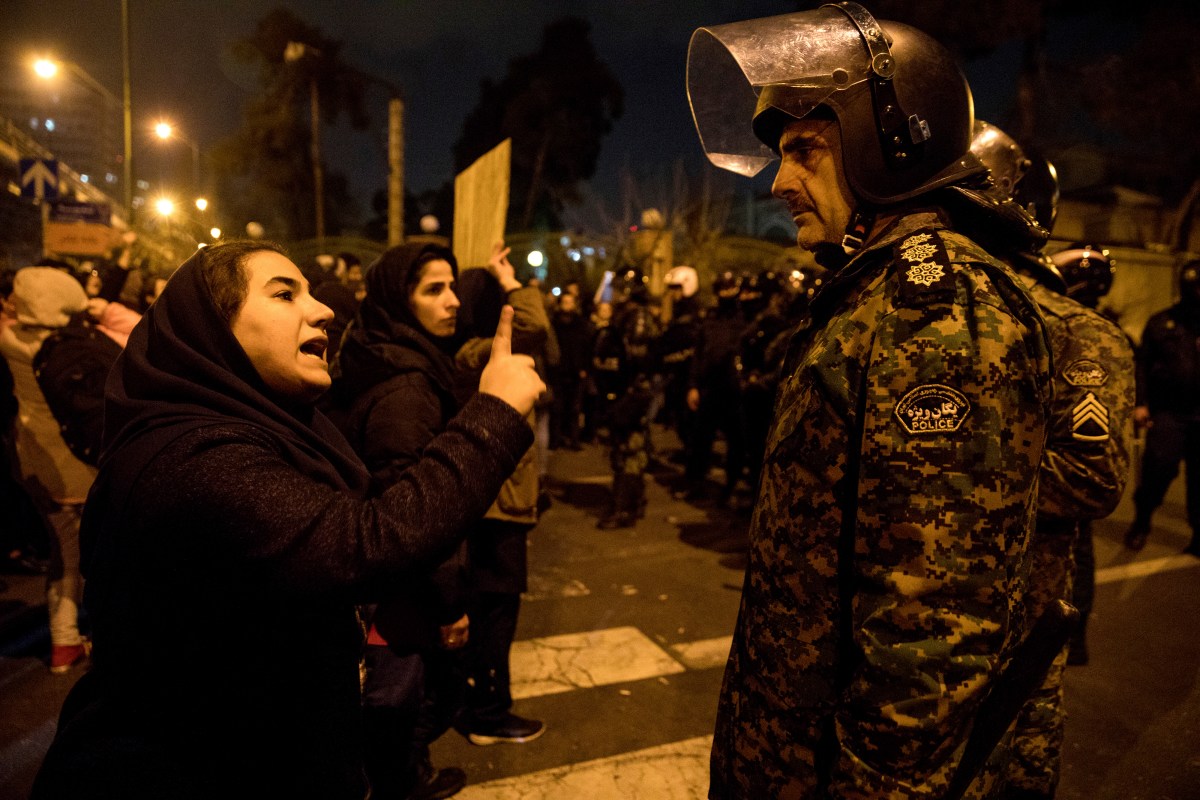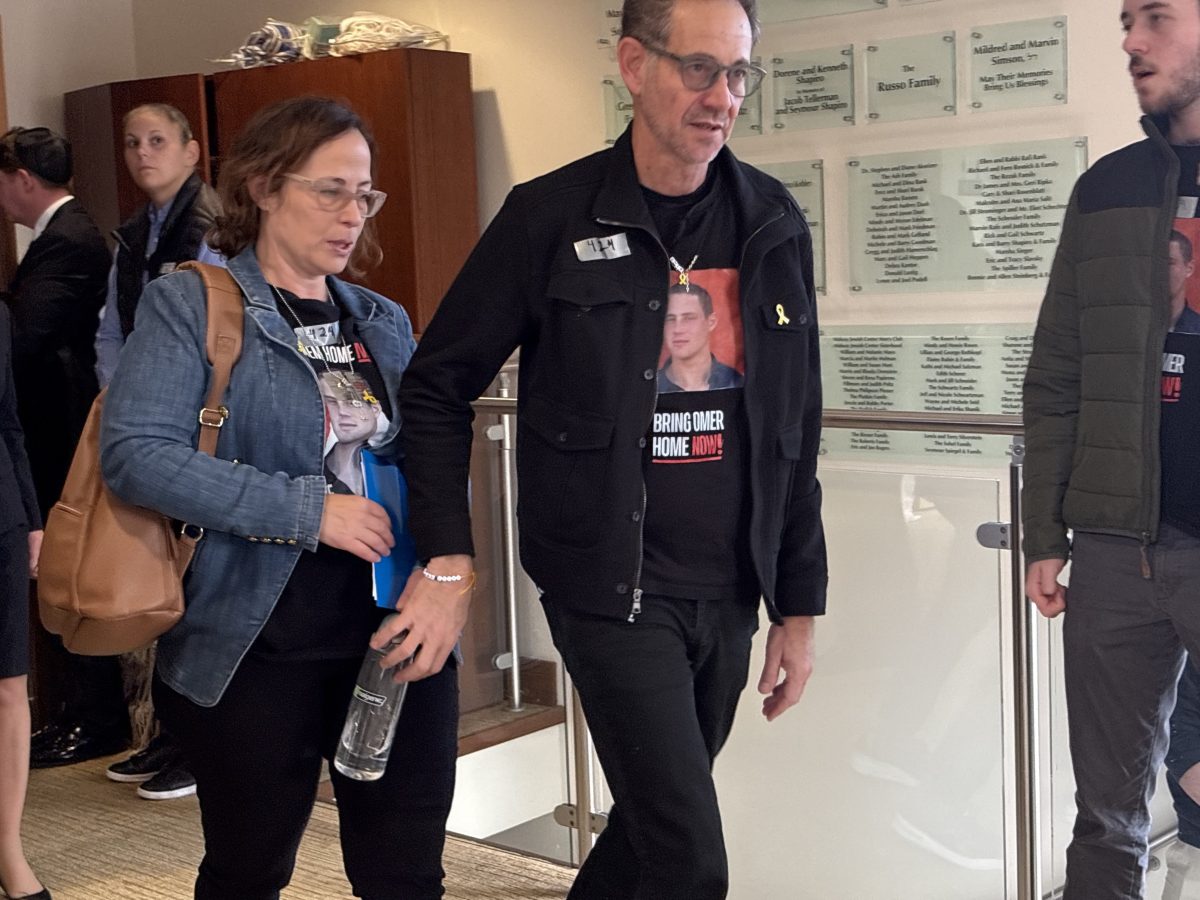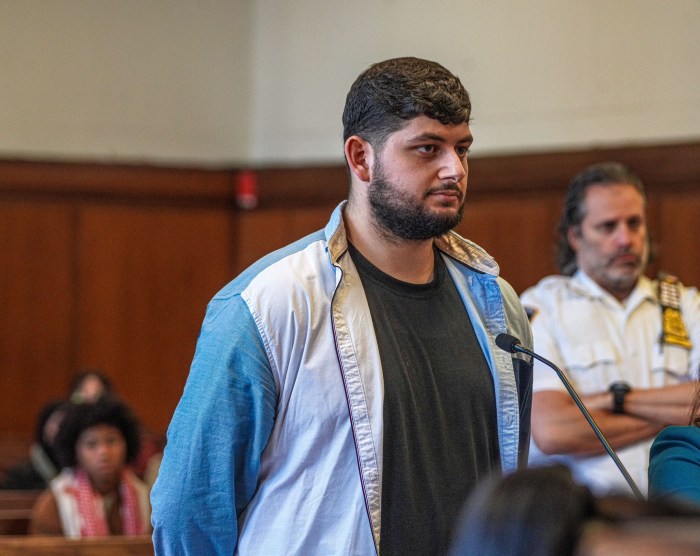BY ROBERT BURNS
Days after it seemed the U.S. and Iran were on the brink of war, the Trump administration on Sunday tried to amplify voices of dissent in Iran — suggesting that the Islamic Republic is under internal threat after denying and then admitting it shot down a Ukrainian passenger plane.
Defense Secretary Mark Esper said street protests in Tehran show that the Iranian people are hungry for a more accountable government.
“You can see the Iranian people are standing up and asserting their rights, their aspirations for a better government — a different regime,” Esper said. He appeared on two Sunday news shows while President Donald Trump’s national security adviser, Robert O’Brien, was interviewed on three others — pressing the White House’s points.
O’Brien suggested the United States sees this moment as an opportunity to intensify the pressure on Iran’s leaders. They already are under enormous strain from U.S. economic sanctions that have virtually strangled Iran’s main source of income — oil exports.
“I think the regime is having a very bad week,” O’Brien said.
“This was a regime that’s reeling from maximum pressure, they’re reeling from their incompetence in this situation and the people of Iran are just fed up with it,” he said, adding that regime change is not U.S. policy.
“The people of Iran are going to hopefully have the ability at some point to elect their own government and to be governed by the leaders they choose,” O’Brien said.
In Tehran, Iran’s security forces deployed in large numbers across the capital on Sunday, expecting more protests.
President Donald Trump tweeted his support for the Iranian protesters.
“To the leaders of Iran – DO NOT KILL YOUR PROTESTERS,” Trump wrote on Twitter Sunday morning. “Thousands have already been killed or imprisoned by you, and the World is watching. More importantly, the USA is watching. Turn your internet back on and let reporters roam free! Stop the killing of your great Iranian people!
Esper said Iran deserves credit for taking responsibility for the shootdown.
“My hunch is it was an accident,” he said, adding that although Iranian government officials initially blamed American propaganda, they ultimately “did the right thing by admitting it.”
The Ukrainian plane crash early Wednesday killed all 176 people on board, mostly Iranians and Iranian-Canadians. After initially pointing to a technical failure and insisting the armed forces were not to blame, Iranian authorities on Saturday admitted to accidentally shooting it down. That acknowledgement came in the face of mounting accusations by Western leaders.
Iran downed the Ukrainian flight as Tehran braced for retaliation after firing ballistic missiles at two bases in Iraq housing U.S. forces. The ballistic missile attack, which caused no casualties, was a response to the killing of Gen. Qassem Soleimani, Iran’s top general, in a U.S. drone strike in Baghdad.
Iranians have expressed anger over the downing of the Ukrainian flight and the misleading explanations from senior officials in the immediate aftermath. Later the government took the blame for the shootdown, saying it was caused by human error.
Reviewing the dramatic sequence of events that preceded the downing of the Ukrainian jetliner Wednesday, Esper justified the U.S. killing of Quds Force leader Gen. Qassem Soleimani on Jan. 3 as an act of self defense, and he said the U.S. foresees no more Iranian military attacks in retaliation for that.
Esper also said the administration’s offer to negotiate a new nuclear deal with Iran without precondition still stands.
Esper said Iran’s paramilitary Quds Force still presents a threat across the Mideast, but the specific attacks he said were being planned by the late Quds Force leader, Gen. Qassem Soleimani, have been “disrupted.”
Esper was pressed to comment on Trump’s statement in a Fox News interview that the president believed Soleimani had been plotting to attack four U.S. embassies. Esper said he shared the belief that Soleimani was planning attacks on multiple U.S. facilities, but Esper did not say these included four embassies.
Esper appeared on CBS’ “Face the Nation” and CNN’s “State of the Union.” O’Brien appeared on ABC’s “This Week,” “Fox News Sunday” and NBC’s “Meet the Press.”





































